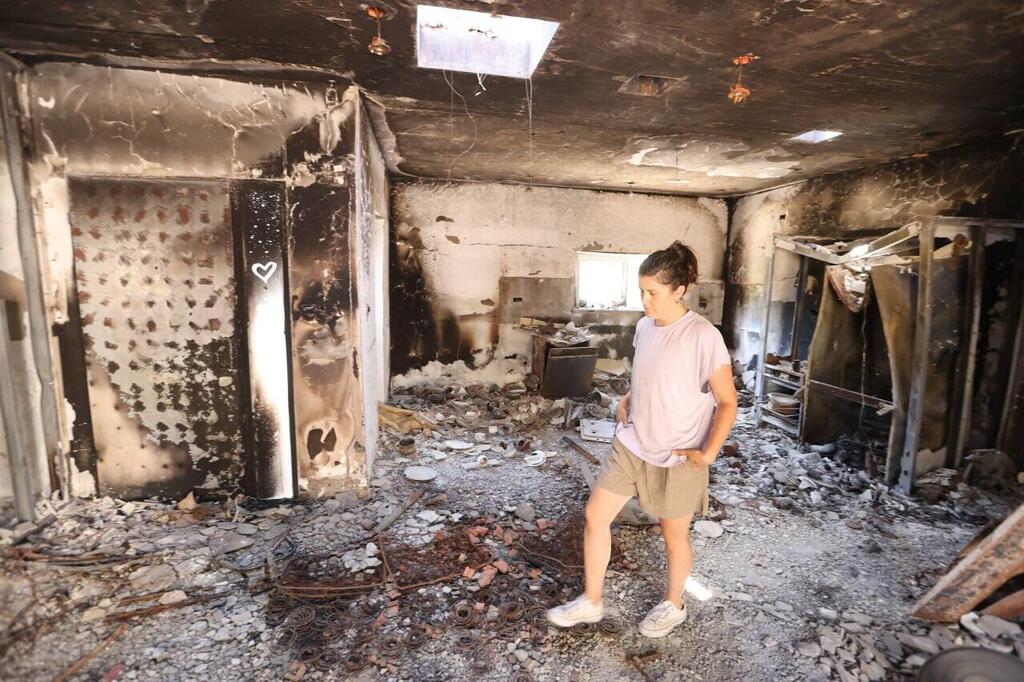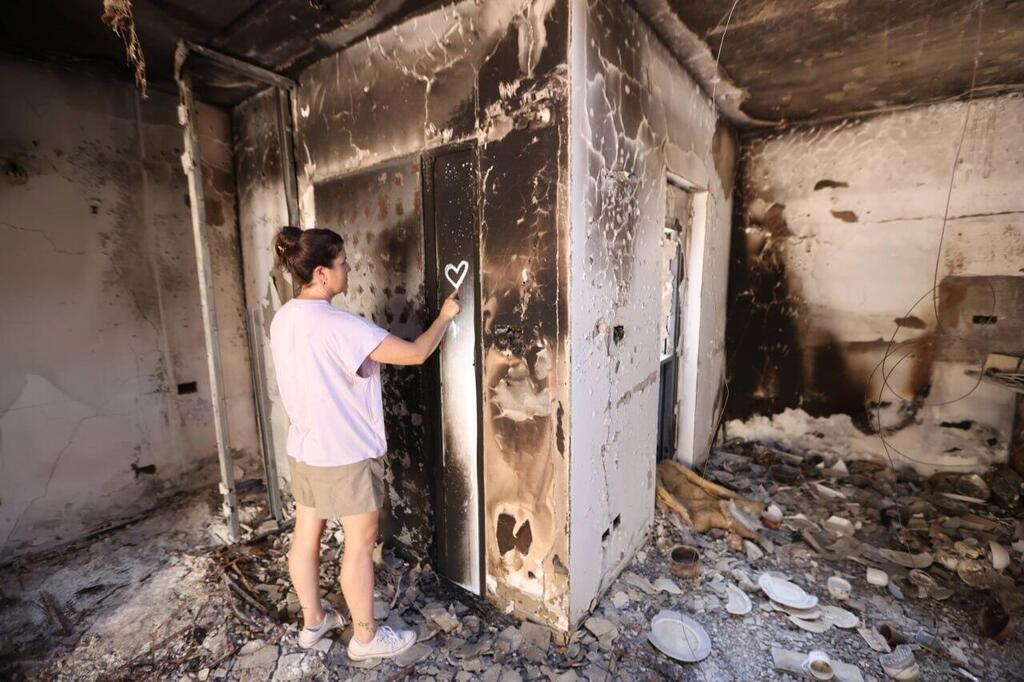Getting your Trinity Audio player ready...
"I waited until the point where I'd feel I was capable of it," begins Amit Itiel-Hershkowitz (39), the daughter of Noah and Ma'ayana Hershkowitz who were murdered in their home in Kibbutz Be'eri on October 7. "Until now, I couldn't bring myself to visit, to return to the house and the kibbutz where I grew up. It's no longer the same place. I came only after nine months, after the seasons had changed, after the rain had washed everything away."
It was only this past Saturday that Itiel-Hershkowitz, who lives in the Golan Heights, managed to visit her parents' home for the first time. They lived in the "HaZeitim" (Olives) neighborhood in Be’eri, where most of the houses were burned down. The Hershkowitz family's story is etched in memory thanks to the Menorah found in their home a few days after the massacre at the kibbutz.
"There is a powerful dissonance in that place," she describes the feelings that accompanied her return to the house filled with so many memories. "On one hand, there are green trees and bushes around, and in the middle, the burnt houses. Mom and dad moved there when I was a soldier, but for me and my children, their grandchildren – it is a home in every sense."
Itiel-Hershkowitz isn't waiting for the military investigation to be published today. "I don't really have expectations from it because we are still deeply entrenched in the pain and the war. Of course, there are those who demand answers and accountability, and that's perfectly fine. On the other hand, I'm not sure how much light it will shed on things we already know.
"I think people in Be'eri want and are looking for closure, but for me, there will be no closure. My parents are gone. I also don't think one can judge the soldiers who came there and fought. No one thought at the time that it was an event of such magnitude."




